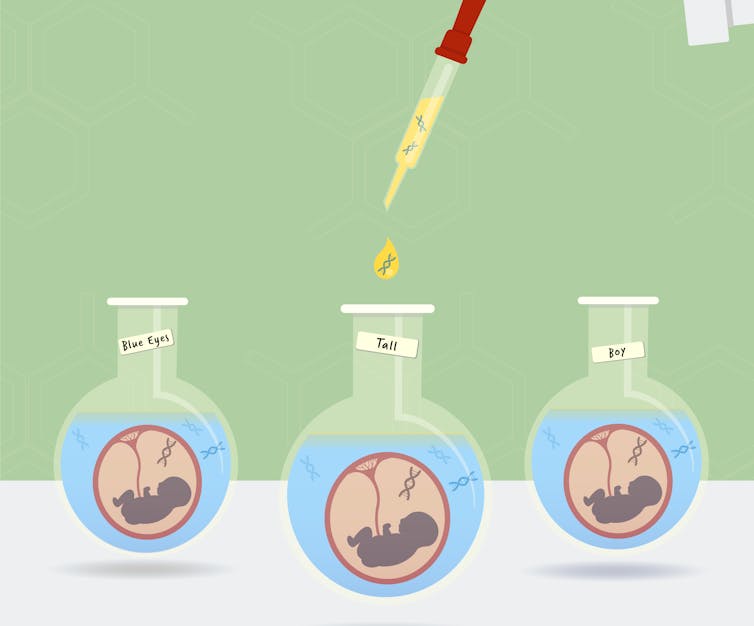As we know, the power of technology becomes greater and greater everyday. The ability to have access to genetic technology to give parents the option of modifying their unborn child seems unrealistic. Although, many people seem to be involved in “designer babies.” For instance, if a baby has a possible chance of inheriting genetic diseases, now a parent is able to free their offspring of that gene. Britt, author from Live Science, states, “A baby born in England recently was chosen in the embryonic stage to be free of a gene linked with certain types of cancer”(Britt 2009). Therefore, this baby will never develop a genetic form of breast cancer or ovarian cancer in her adult life. Another case like this was done in the United States, with a man who had a 50 percent chance of passing on a gene for deadly colon cancer had embryos screened prior to implanting one in her womb, resulting in a daughter that won't get the disease.

Up until 2017, it was known that most countries have not yet legislated on genetic modification in human reproduction, but of those that have, all have banned it. Philip Ball, editor of The Guardian, states, "the idea of using Crispr-Cas9 for human reproduction is largely rejected in principle by the medical research community"(Ball 2017). The team of scientist investigating this research is worried that using methods like Crispr-Cas9, could quickly "start us down a path towards non-therapeutic genetic enhancement"(Ball 2017), even if focused initially on improving health. Although, Ronald M. Green, an ethics professor at Dartmouth College has a whole different outlook on this opportunity. Green envisions a "nearly disease-free future in which the information gleaned from reprogenetics allows genes to be tweaked, producing healthier humans without discarding embryos"(Britt 2009). Therefore, there are still many different opinions on whether or not making improvements to the genome would be a good thing or if it would backfire.
It's reassuring to think that it's possible to have children knowing you wouldn't pass on something such as cancer. I'm unsure as to whether this seems like a good idea just because I'm wondering if there would be other problems due to the change or if it would even make it 100% preventable. However, it is still pretty interesting!
ReplyDeleteI think this is one example of how ethics can play into science. There is so much that we are able to do with technology but the question is should we go through with something just because we are capable of it. I do think that this could be a useful tool but it would be hard to make it available to everyone.
ReplyDeleteThis comment has been removed by the author.
ReplyDeleteI agree with Jessica, this is definitely an example of how ethics can play into science. Many people would say that editing sequences and creating designer babies is "playing God" in a sense. If this become easily available to most people, I wonder how society would react concerning politics and religion.
ReplyDelete